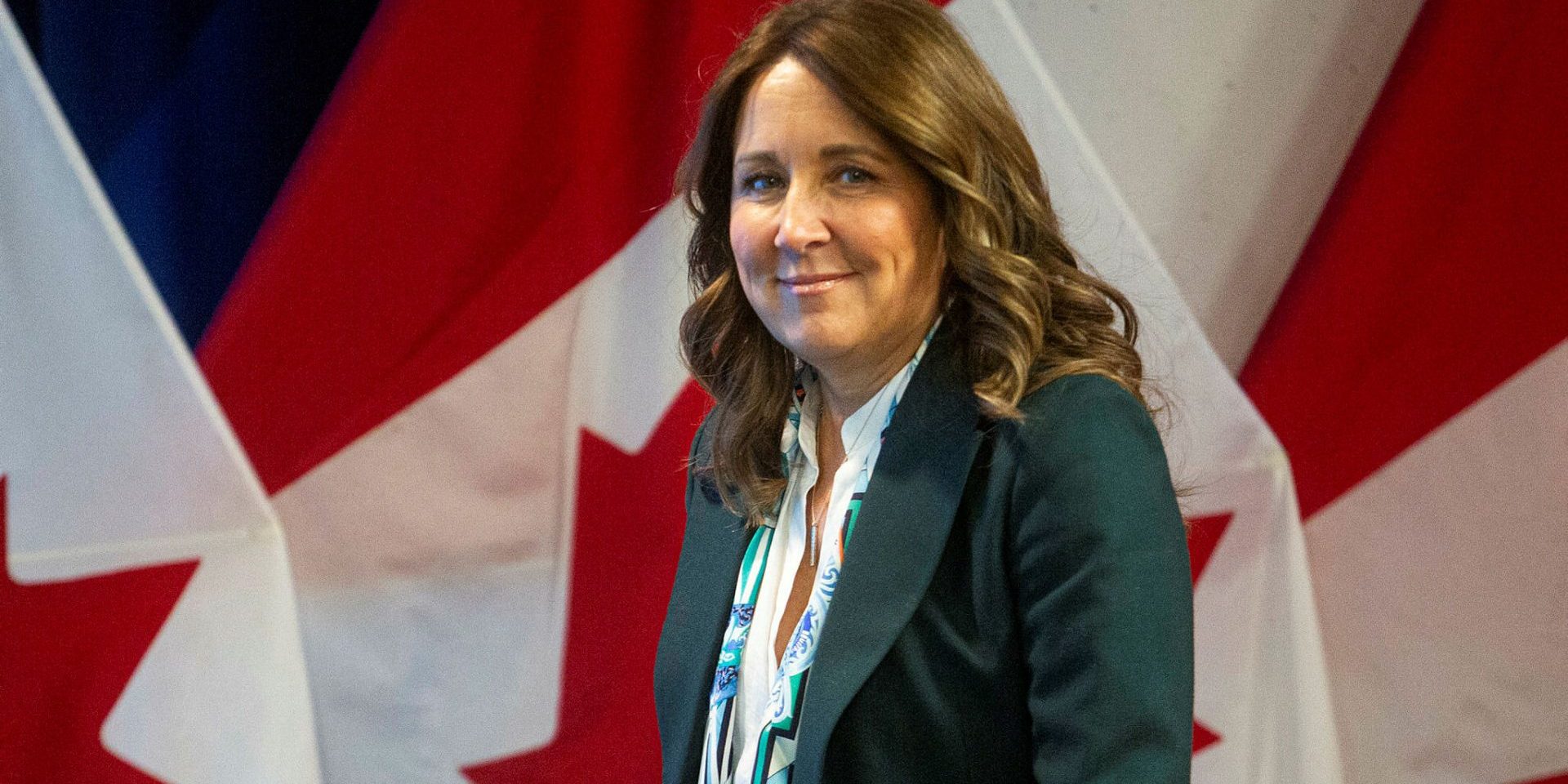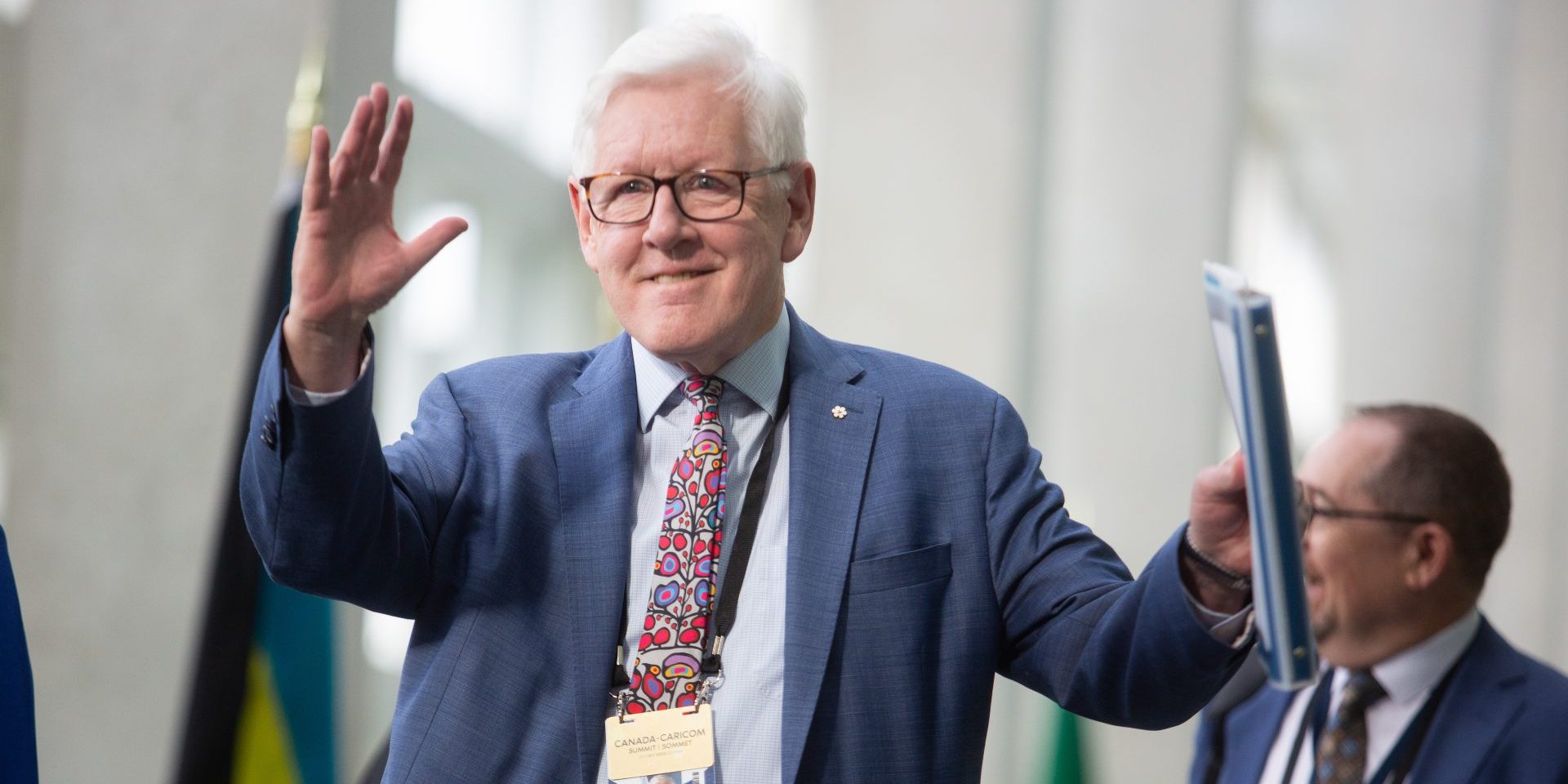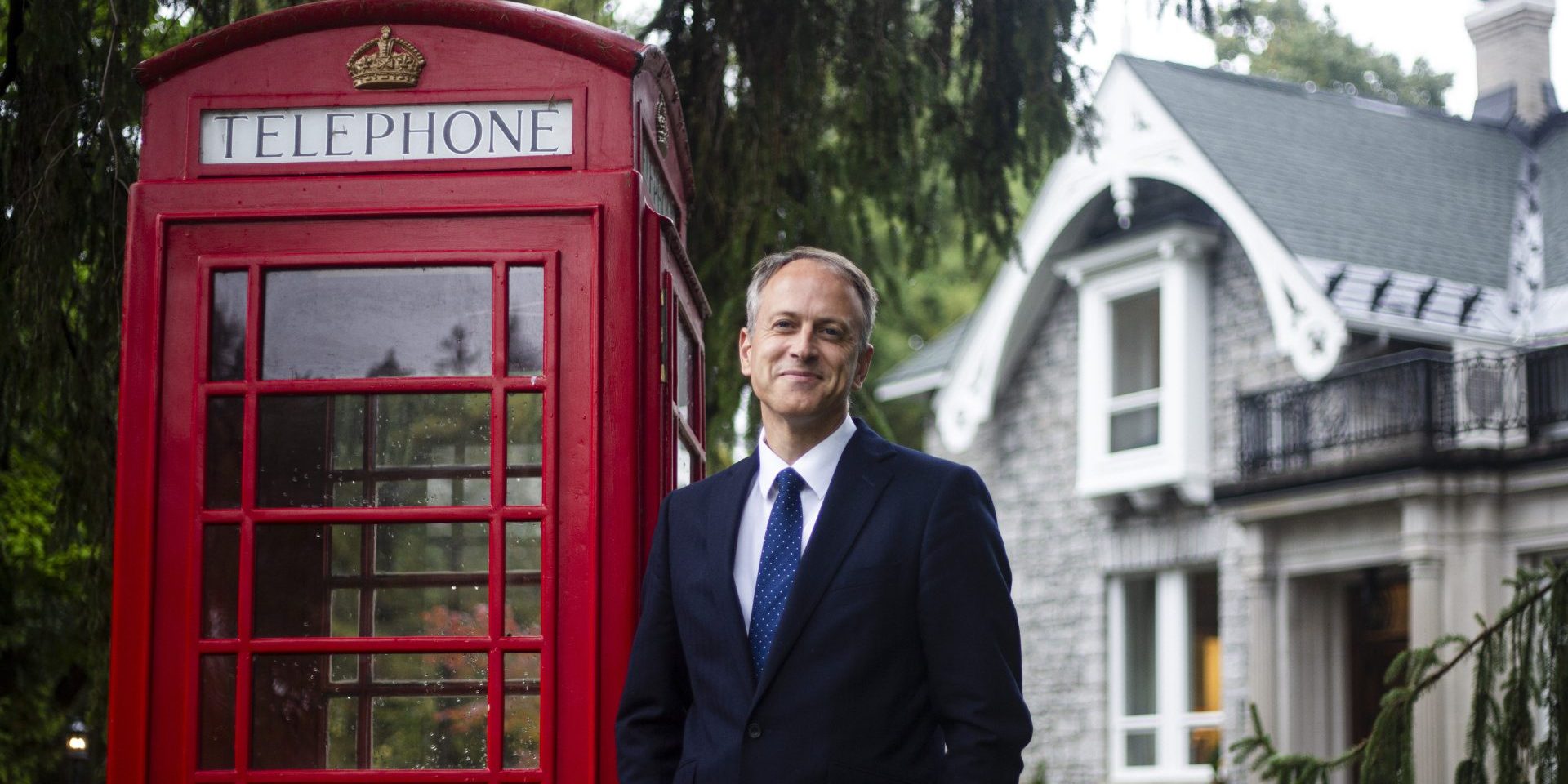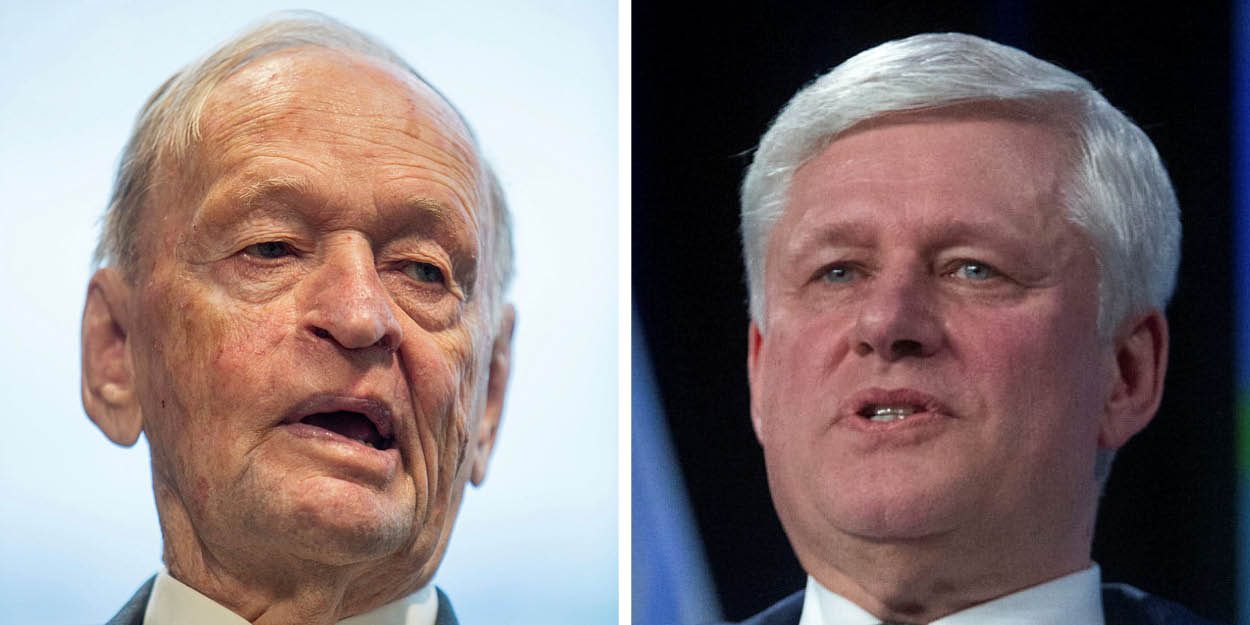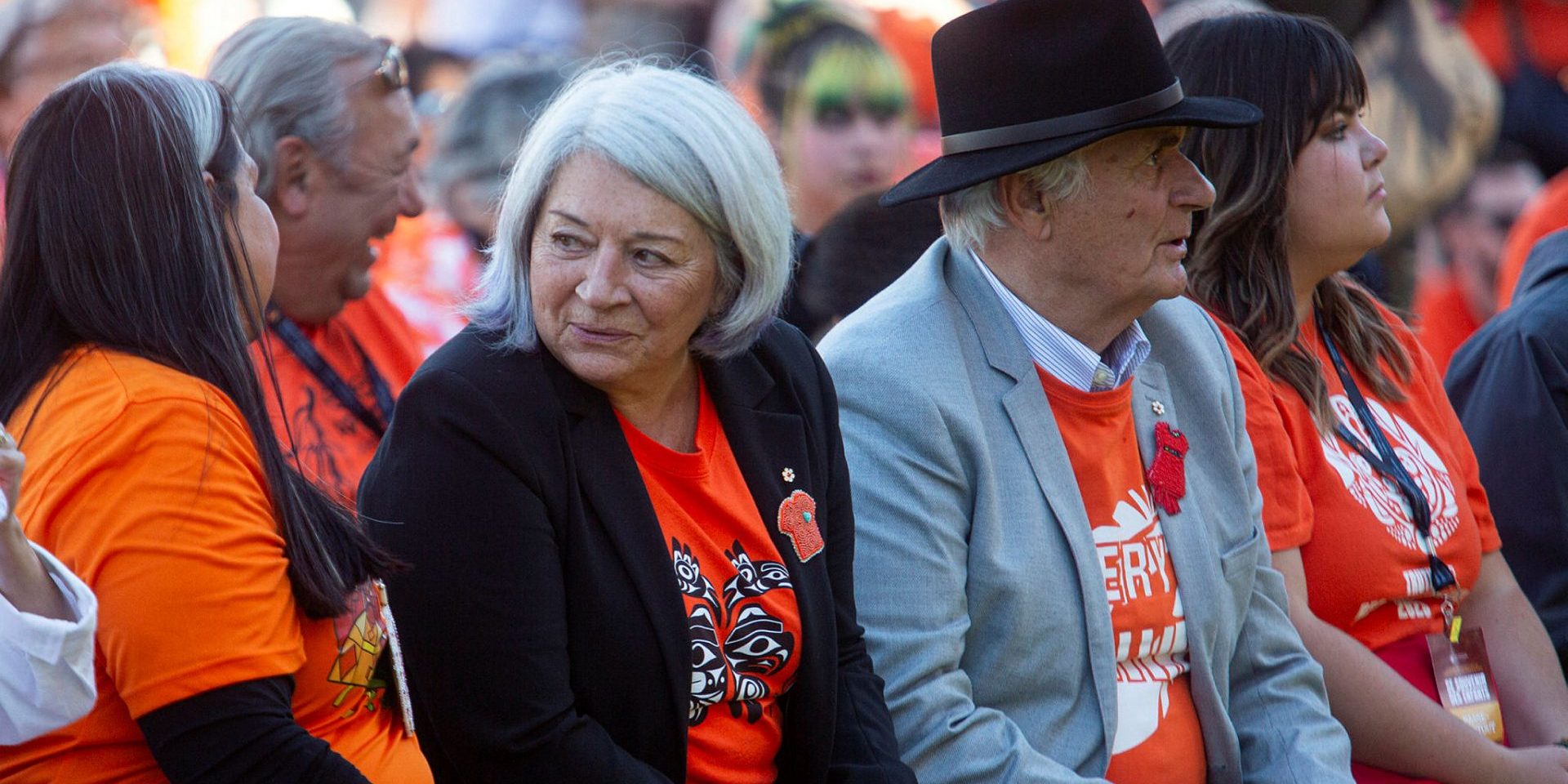Politics This Morning
Carney meets Starmer in London
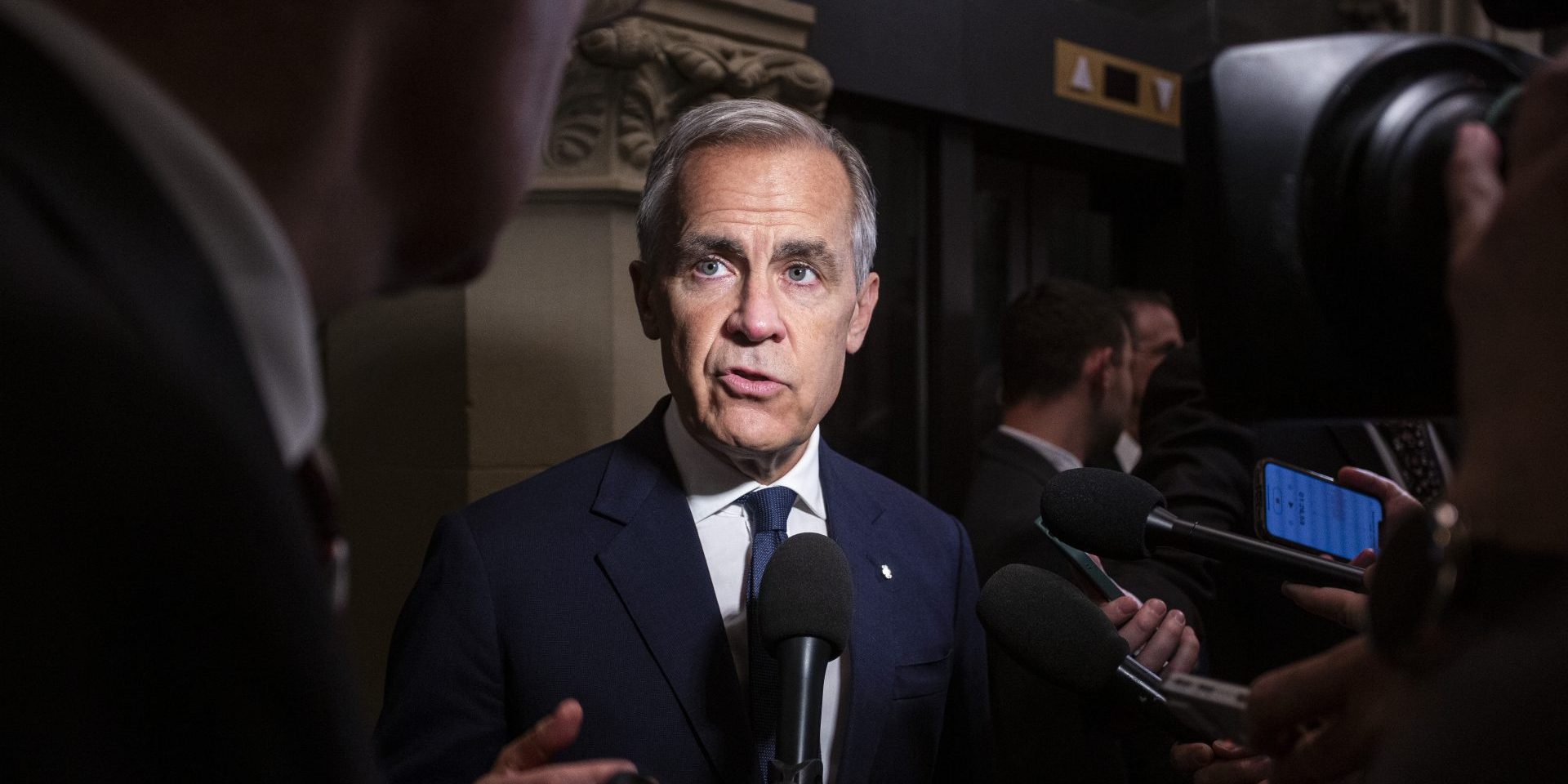
Good Friday morning,
In today’s Politics This Morning:
- Anand is set to visit India and China in October.
- Peter Mazereeuw breaks down the PBO’s recent report on Canada’s fiscal and economic outlook.
- The AI minister appears at a forum in Toronto.
In this week’s edition of “How many world leaders are too many world leaders to meet in a week?”, a new set of names will be added to Prime Minister MARK CARNEY’s list.
The “Mr. In-high-demand” has been on a spree of mingling with his peers from around the globe in recent days, and will make a stop in the good ol’ London, England, today and tomorrow.
After greeting the Indonesian President PRABOWO SUBIANTO and the Irish Taoiseach MICHAÉL MARTIN in Ottawa this week, and seeing numerous other leaders in New York at the 80th UN General Assembly, Carney will today speak at the Global Progress Action Summit in London.
The event, as per a press release, brings together progressive politicians, former leaders, strategists, academics, and others at a time when the world is witnessing “a rise of the populist right.”
The agenda, it says, is to discuss issues of national security, immigration, economic growth for all, and “building fair societies based on solidarity and reciprocity.”
Other leaders who will be speaking and/or attending include British Prime Minister KEIR STARMER, Australian Prime Minister ANTHONY ALBANESE, Danish Prime Minister METTE FREDERIKSEN, the Spanish Prime Minister PEDRO SÁNCHEZ, the Icelandic Prime Minister KRISTRÚN FROSTADÓTTIR and the former New Zealand prime minister JACINDA ARDERN.
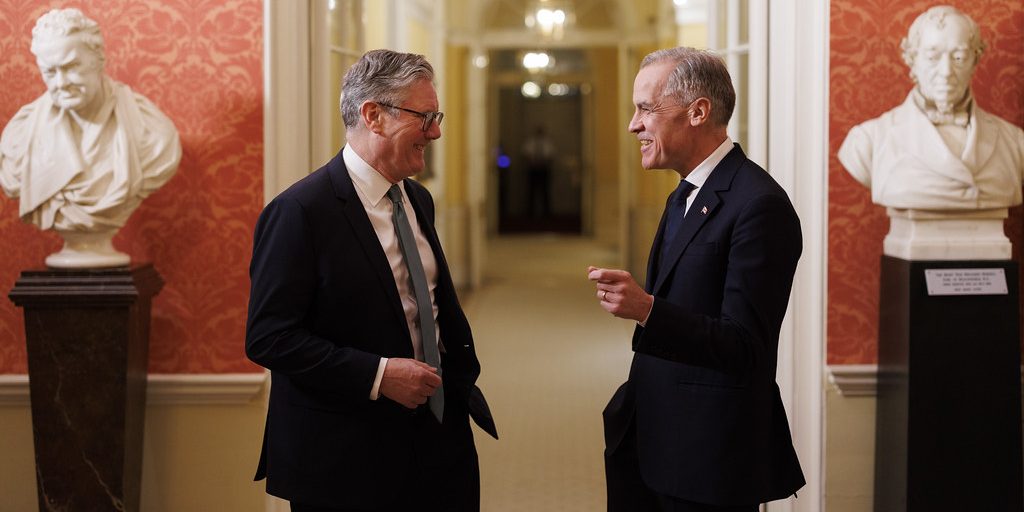
The speeches, including the one by Carney, will be broadcast live here.
The Brits await trade legislation promised for this fall
While in London, Carney is also expected to talk trade, Ukraine, and the matter of Palestine’s statehood with Starmer. Both Canada and the U.K. formally recognised Palestine as a state recently, and the duo may discuss the steps to further this cause into a reality.
Speaking of trade, the last time Carney met Starmer in June, the British government announced that Canada is moving forward to fully ratify the U.K.’s addition to the Comprehensive and Progressive Agreement for Trans-Pacific Partnership (CPTPP).
The CPTPP formally includes many of the countries in and around the Pacific, and in 2023, the former international trade minister MARY NG supported the U.K.’s accession to the bloc.

The U.K. is now part of the CPTPP, since half the member countries that are covered by the deal have ratified it. For the agreement to come into force bilaterally in Canada, however, the federal government will have to ratify it individually too.
Canada promised to introduce legislation in the Parliament to this end this fall. No such bill has yet been tabled so far, however, so the Brits may check in on the status. Starmer and Carney had also agreed to set up a “joint task force” to advance the broader Canada-U.K. free trade agreement.
The CBC has reported that while Carney’s current meeting with Starmer will lay the groundwork for more progress on the trade front, no major announcements may be incoming at this time.
While things are moving sporadically with the U.K., yesterday the Irish leader’s Ottawa visit bore some fruits.
Martin agreed to fully ratify Canada’s Comprehensive Economic and Trade Agreement with Europe by 2026, and announced plans to return to Canada with a “high level trade delegation” after the ratification is done.
In the meantime, a “ministerial led” Irish trade delegation will arrive in Canada in November. Martin also invited Carney to visit Ireland officially in 2026.
Anand is set to travel to India and China
Foreign Affairs Minister ANITA ANAND will pack her bags to travel across the ocean to India and China sometime in October.
Bloomberg first reported about her visit this week and Anand’s office confirmed with Politics This Morning that she is indeed set to visit the two countries in the coming weeks.
Canada has had icy relations with the two for a number of reasons, most notably China’s imprisonment of a pair of Canadian citizens—the “two Michaels” incident—India’s involvement in the assassination of another Canadian citizen, and trans-national repression and political interference campaigns rooted in each country. Still, the feds have made gradual attempts to mend the ties in recent months.
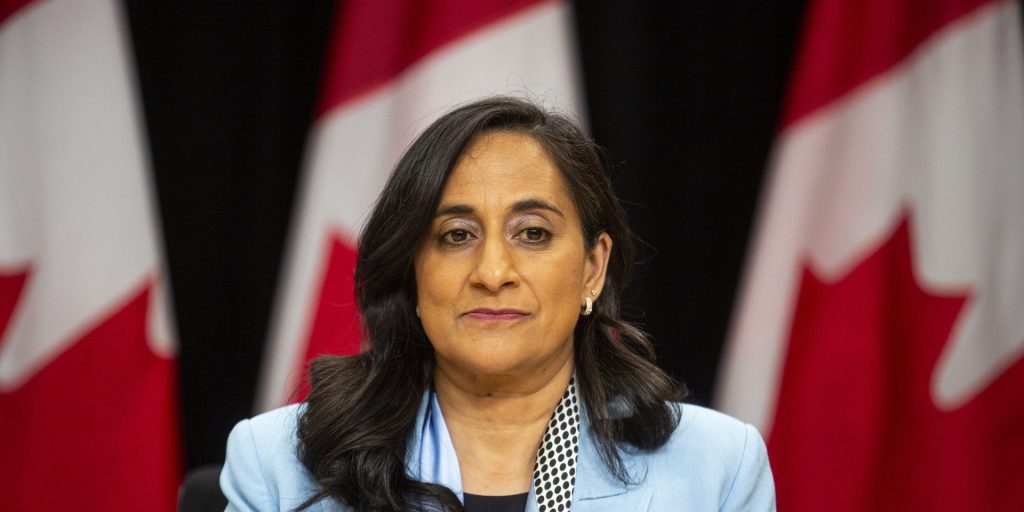
A Canadian delegation led by Saskatchewan Premier SCOTT MOE and Carney’s Parliamentary Secretary KODY BLOIS went to China this month to discuss tariffs on agriculture and seafood products.
Carney’s national security advisor NATHALIE DROUIN met her Indian counterpart in India this month too, to talk about Canada’s security issues, and the two had a “productive meeting.” Anand is expected to meet the Indian Foreign Affairs Minister S. JAISHANKAR in India, as per Indian media, in a further sign of a thaw in the relationship.
In the House
MP’s will resume debating Bill C-8 on tightening cyber security for Canada’s critical sectors today, Government House Leader STEVEN MACKINNON told the Green Chamber yesterday.
The legislation is sponsored by the Public Safety GARY ANANDASANGAREE, who will deliver remarks in its support. Politics This Morning did a breakdown of some of its proposed provisions in June here.
Anandasangaree has had a tough week, and it is safe to assume he will face some difficult questions on the workings of this bill, and other matters, from the opposition today.
The feds have also given notice of tabling another bill amending the National Defence Act. The contents of it are currently mysterious, and will be known in the coming days.
People: Lametti cashes in
Former government minister and ephemeral principal secretary to the PM DAVID LAMETTI will earn between $319,600 and $375,900 annually in his new patronage post as Canada’s ambassador to the United Nations, a recent Order in Council revealed.
That’s about $60,000 per year more than his predecessor, BOB RAE, got when he was given the same post in 2020. It’s also significantly more than Canada’s prime minister earns, if you don’t count the MP salary that comes with it.
In committee
No committee meetings are taking place today, but yesterday was a full day for House committees. Here’s an overview of some of the major action that unfolded.
PBO calls government’s fiscal track ‘alarming,’ ‘stupefying’, ‘unsustainable’
Parliamentary Budget Officer JASON JACQUES released an “economic and fiscal outlook” report yesterday. It was pretty grim.
Jacques’ office forecast weak economic growth for the foreseeable future: between 1.2 per cent and 1.8 per cent for each year between now and 2030. The PBO estimated that Canada’s GDP level will end up 0.5 per cent lower in 2030 than it would have been without the current and expected trade disruptions.
That’s real GDP, which accounts for purchasing power. Nominal GDP—strictly measuring current dollars—is projected to be $12.9-billion lower, on average, each year thanks to the trade war with the United States. That gives us the most straightforward measurement of how that trade war will eat into the government’s tax base, according to the PBO report.
The deficit? The PBO projects that it will “increase sharply” from $51.7-billion in 2024-25 to $68.5-billion in 2025-26, thanks to the combination of economic weakness, government tax cuts, and planned government spending.
(Tax cuts certainly make for good politics. When they are paid for with borrowed money, however, the policy rationale starts to get shaky.)
This spike in the deficit comes not just in absolute terms, but also in terms of our ability to service the debt, a.k.a debt-to-GDP ratio. The PBO estimated that ratio will increase from 41.7 per cent in 2024-25 to more than 43 per cent in the “medium term.”
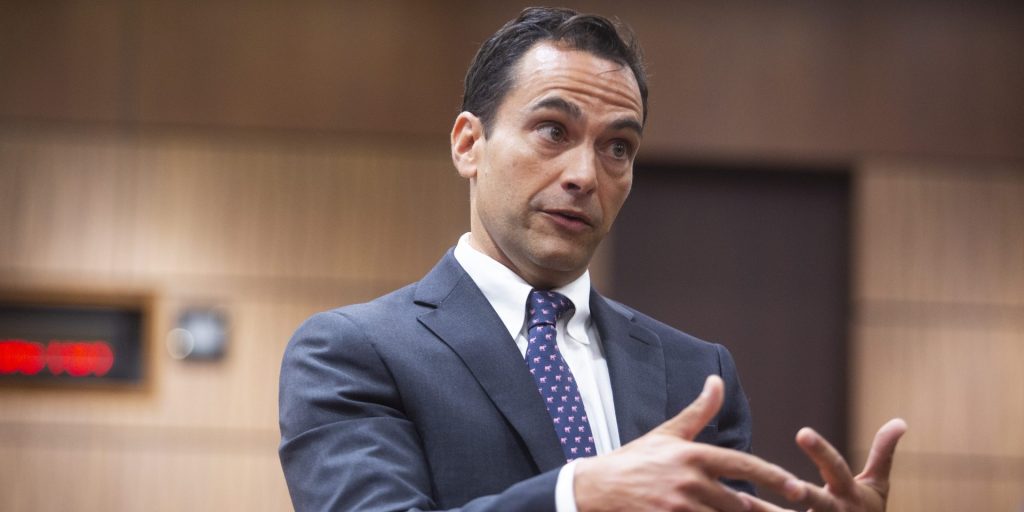
That last bit explains why Jacques told a parliamentary committee earlier this month that his office couldn’t find any kind of fiscal “anchor” to which the federal government was committed.
Jacques was back before the House Government Operations and Estimates Committee yesterday. He didn’t sugar coat his assessment of the government’s fiscal track in his comments to the committee.
“I think everybody should be concerned,” he said about his office’s projection that the debt-to-GDP ratio was on track to grow in the years ahead.
“It’s a really serious day,” he said.
The PBO’s figures don’t include about $20-billion worth of as-yet confirmed Liberal campaign promises, nor do they reflect all of the defence spending to which the prime minister has committed since the election.
“It’s certainly not sustainable,” said Jacques of the government’s fiscal position.
He went on, in response to questions from opposition MPs on the committee.
“Not sustainable in the long term, that’s what’s shocking,” Jacques said in French.
“Clearly revenue will have to go up, and perhaps at the same time spending will have to go down. The current numbers aren’t sustainable,” he said.
Later: “the most important word in the release this morning was ‘unsustainable’”.
“Unsustainable means you don’t have the option of saying, ‘Maybe I’ll wait a couple of years, I’ll see how things go.’ It means, if you don’t change, this is done,” said Jacques.
He also called the projections for increasing federal debt service payments “stupefying,” and “shocking.”
“I believe the Nov. 4 budget will show that changes are to come,” he said.
Impact Assessment Agency working to speed up reviews
We told you yesterday that the House Environment Committee had scheduled an in camera interview with officials from the Impact Assessment Agency and Canada Water Agency. Something changed the mind of chair ANGELO IACONO, however, and yesterday the meeting was opened up to the public.
PATRICIA BRADY, the Impact Assessment Agency’s vice-president of strategic policy and programs, took most of the questions. The big picture takeaway from her testimony is that the Impact Assessment Agency is still here, and still relevant, notwithstanding the cabinet’s broad new powers to fast-track “major projects” under the Building Canada Act.
That Act includes powers for the cabinet to tick off any and all legal requirements under the Impact Assessment Act and a host of other environmental protection laws in a single ministerial decision.
Brady said that “nation-building” projects that the government slots under the Building Canada Act will still have to go through a review by the Impact Assessment Agency, so long as they qualify for such a review under the agency’s existing criteria.
Prime Minister Mark Carney introduced the Building Canada Act, and created the new Major Projects Office, primarily to speed the rate at which large infrastructure and natural resource extraction projects get government approval. He pledged that all the necessary approvals for such projects would come within two years or less.
Brady told the committee yesterday that an average of eight projects a year have qualified for a review by the Impact Assessment Agency since it came into being in 2019. About 40 per cent of those required only a partial assessment, and many of those were dealt with inside of six months.
Some projects require a more in-depth assessment. Brady said the agency was working to speed up its assessments to hit Carney’s two year target. The agency is aiming to do so by “consulting Indigenous Peoples earlier and in a more targeted manner,” standardizing some of the mitigation measures required of project proponents, and striking deals with provinces to split up some of the work.
The agency has cooperated with the B.C. government on this front for a decade, she said, and is currently working on deals with New Brunswick and other provinces.
Auditor General highlights the difficulty in determining which federal offices can be used for affordable housing
Auditor General KAREN HOGAN flagged that there is no coherent way of knowing which federal offices are being used or are underutilized, while testifying before the House Public Accounts Committee yesterday.
Hogan was called to testify on her department’s report on current and future use of federal office space, which was released this summer. The Hill Times’ IREM KOCA has covered the report’s main observations here.
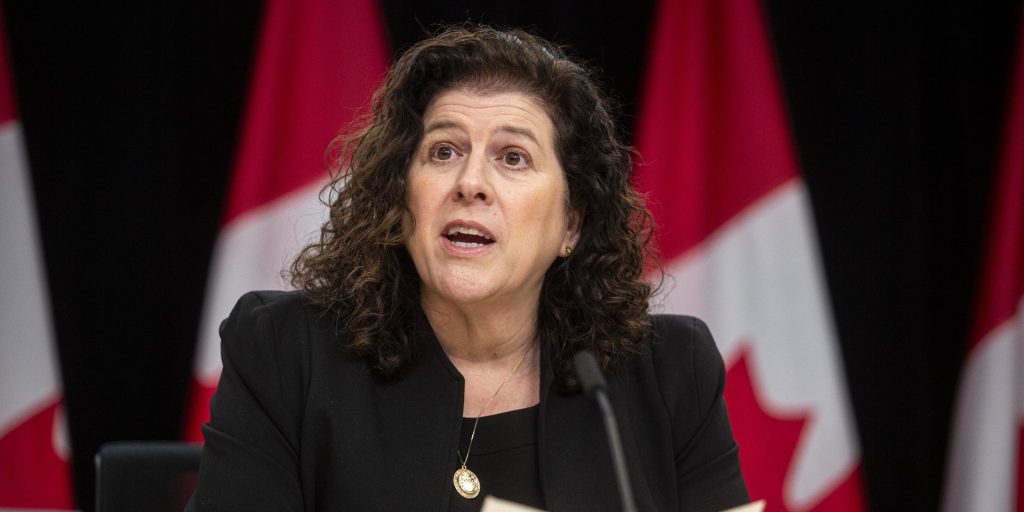
“When you approach looking at a federal office space, there’s two basic elements you need to know if you’re planning on reducing it: how much office space do you have? And how is it being used?” she told MPs yesterday. “And while ‘how much do you have’ is known, it’s the ‘how is it being used’ is where the missing element is.”
There is no standard way of collecting this information that can then be made available to Public Services and Procurement Canada, Hogan said.
“There were so many ways that this was being tracked: badge swipes, applications, or just physical counting, and that’s not giving you a reliable picture, and then it’s difficult to consolidate when you’re not comparing the same elements.”
This missing data is one of the aspects that is making it harder for PSPC to earmark federal buildings for constructing affordable homes, as per Hogan.
PSPC has admitted that the return to office mandate for public servants has added to their challenges of freeing up office space as they are now back in regular use.
Officials from the department will appear before the House Public Accounts Committee next week, where they will be grilled further on this conundrum.
What else is happening today?
AI Minister EVAN SOLOMON is attending an Empire Club of Canada event in Toronto, where he will be talking about the economy, and “making AI and quantum strong” at 11:30 a.m.
Women and Gender Equality Minister RECHIE VALDEZ is repeating announcements made by the feds to support the auto sector in Windsor, Ont., at 10 a.m.
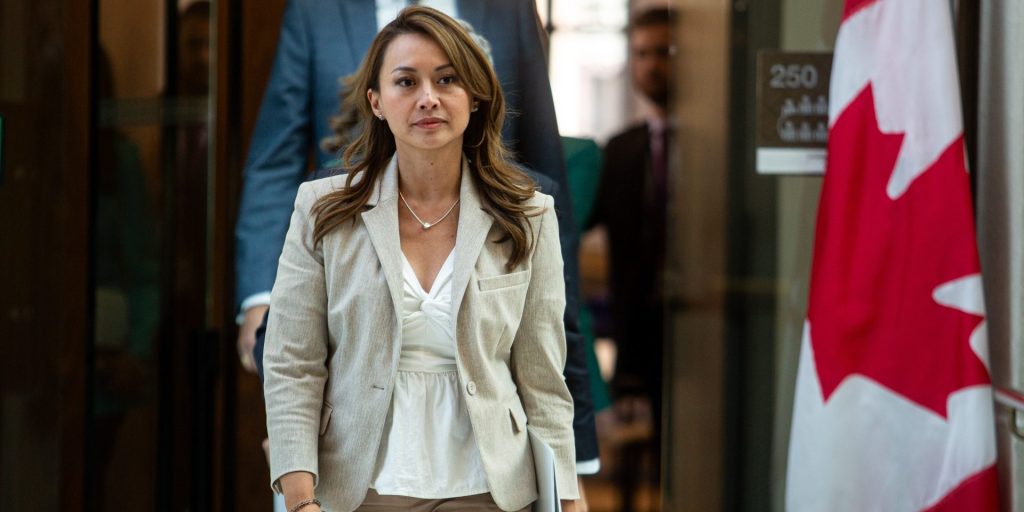
Elsewhere, Green Party Leader ELIZABETH MAY will appear at the Congress of Aboriginal Peoples 54th Annual General Assembly that’s taking place in Ottawa today and tomorrow.
In the news
From the NDP circles: Former NDP MPs PETER JULIAN and MATTHEW GREEN launched a “new project” to help rebuild the party as candidates launch their bids for leadership race, reports ELEANOR WAND.
The crisis in Canada Post: The federal government’s decision to curtail some of Canada Post’s offerings could further flame the labour dispute facing the postal service, an academic tells IREM KOCA.
Public service overhaul: Canada’s chief data officer STEPHEN BURT offers a glimpse into the areas where artificial intelligence is currently being used in the federal public service. MARLO GLASS has more on it here.
Today’s Data
Dovetailing with the PBO’s work, Statistics Canada will release new reports this morning on GDP by industry and government finances. We’ll also get fresh data on passenger air traffic, wholesale trade, and more. You’ll be able to find it all here beginning at 8:30 a.m.
Yesterday StatsCan reported that Canadian natural resource exports had dropped by 2.4 per cent in the second quarter of 2025, thanks largely to American tariffs on wood and metal products.
Another report on the labour market showed the number of job vacancies declined by 4.2 per cent in July, and was down 14.5 per cent year-over-year that month. Employment in the construction and manufacturing sectors was down, while the hospitality, finance, and health care sectors saw an increase. Average weekly worker earnings were up 3.3 per cent in July compared to the same month last year.
In case you missed it
The Canadian Union of Postal Workers launched a nation-wide strike hours after Procurement Minister JÖEL LIGHTBOUND announced sweeping reforms curtailing Canada Post operations. More on it here.
We asked, you answered

Indigenous People in Canada weren’t allowed to vote in Canadian federal elections, unless they were willing to give up their Indian status, and that only changed in 1960. Tip of the hat to: NATHAN NASH, RON COLUCCI, GARY VANDERHADEN, and MAX FINEDAY.
Political Trivia Question
Who said this? “Great obstacles make great leaders.”
Please send your responses to trivia@hilltimes.com by NOON today, and all names will be in Monday’s Politics This Morning. Have a great weekend.
You can get in touch with the authors of Politics This Morning at pmazereeuw@hilltimes.com and rkachhela@hilltimes.com





 LICENSING
LICENSING PODCAST
PODCAST ALERTS
ALERTS